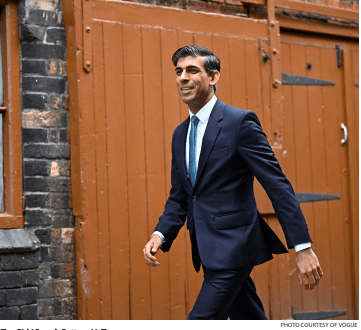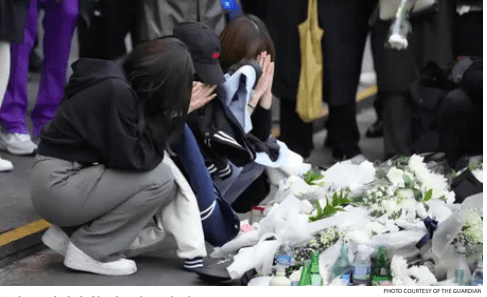Tag: international
UN’s Structure Does Not Ensure Women’s Equality
by Christina Charie '25 on March 2, 2023
Opinion Editor
Opinion
An organization committed to safeguarding human rights has members that violently suppress women. The United Nations produces numerous statements condemning gender-based violence and discrimination in foreign states, but given their inability to enforce the precedents in individual states, women’s inequality persists. The ideals presented by documents such as the Convention on the Elimination of All Forms of Discrimination Against Women would protect women across the globe, if the standards were enforced adequately.
According to the United Nations Charter, the organization “reaffirm[s] faith in fundamental human rights, in the dignity and worth of the human person, in the equal rights of men and women.” State interests, however, prevent the United Nations from taking direct steps to carry out its mission globally, which harms vulnerable populations and shelters oppressive governments from facing consequences. In ideal circumstances, the United Nations would be an effective instrument of change on a global scale. Unfortunately, the world is far from ideal in the modern era.
Without enforcement mechanisms, the United Nations cannot force regimes to comply with basic statutes relating to human rights, including gender-based discrimination. Each state can choose whether to enter conventions, which allows certain nations to avoid having the United Nations review their progress in terms of gender equality. Recently, this standard was demonstrated following the death of Mahsa Amini, a young Iranian woman taken into custody by the country’s morality police. UN Women advocated “for the Iranian authorities to hold an independent, impartial, and prompt investigation into Ms. Amini’s death, to make the findings of the investigation public and to hold all perpetrators accountable.” Secret police physically assaulted a woman for having a lock of hair visible in public, but the United Nations cannot force the Iranian government to cooperate with the international community. The national sovereignty of oppressive regimes takes priority over human rights in the context of global politics. Without more oversight from the United Nations, women will continue to face various forms of persecution.
Selective participation within the United Nations prevents the organization from enacting changes that protect the dignity of women and girls worldwide. In the United Kingdom, the government finally incorporated the Istanbul Convention into their national law, but the state refused to provide the same level of protection against violence for migrant women. If a state wants to reap the benefits and privileges of being part of the United Nations, some matters should be non-negotiable, especially when issues relate to human rights. Actions speak louder than words, and the world is telling women they are second-class citizens. Unfortunately, the United Nations places an excessive amount of trust in states to enforce agreements and protect human dignity.
Conventions and statements are meaningless without change. The Convention on the Elimination of All Forms of Discrimination Against Women attempts to facilitate action by asking states “to adopt appropriate legislative and other measures, including sanctions where appropriate, prohibiting all discrimination against women.” This declaration loses its weight and meaning when member states, including Egypt, Sudan, and Mali, allow a significant majority of their female populations to undergo genital mutilation procedures. This procedure has no medical advantages for patients. In fact, the practice causes serious complications including infection, complications during childbirth, and even death. The United Nations can issue thousands of statements advocating for states to safeguard women’s rights, but that does not prevent discrimination and violence from occurring in its member states. Without enforcement strategies, the United Nations is powerless against oppressive regimes.
If human rights are the main priority within the United Nations, the organization needs more power over its members. All member states should be required to abide by certain conventions and agreements concerning human rights to avoid facing repercussions within the organization. The world cannot sit idly by as historically disadvantaged populations, including women, face physical and mental torture at the hands of regimes recognized by the United Nations. International investigations should become the standard when states are suspected of violating human rights. This will provide a system of checks and balances that prevents states from ignoring benchmarks set by the United Nations.
The United Nations emerged from the horrors of two global wars to provide hope for the future, a future that included diplomacy and respect for human dignity. Unfortunately, states still refuse to cooperate to protect the most vulnerable populations. Nationalism obstructs the tools of international justice. If states refuse to accept principles set forth by the United Nations, then the organization must evolve to achieve its objectives. Ignoring the tragedies occurring across the world sets an appalling precedent that accepts violent discrimination.
Can the U.K. Find a Reliable Leader That Lasts More Than 45 Days?
by Shannon Kelly '26 on November 3, 2022
News Staff
National and Global News

With Boris Johnson’s resignation that left the nation in shambles and Liz Truss’s departure after just 45 days as Prime Minister, the United Kingdom is looking for a stable leader for the third time in two months. Former Finance Minister Rishi Sunak was named Prime Minister on Tuesday, Oct. 25. A member of the Conservative party, Sunak has a great deal of experience in finance and knows a lot about British politics. Considering Truss left due to a failed tax-cutting budget, Sunak’s experience as Finance Minister is even more important. However, he only has seven years of experience in national politics, and many fear this will make the U.K. appear weakened. Sunak has a lot on his plate: the Conservative Party is currently divided and it is his responsibility to unite them, while also focusing on stabilizing the economy.
Sunak is the U.K.’s first elected Prime Minister of color. He is the first Prime Minister of South Asian descent, the first practicing Hindu to take office, and the youngest Prime Minister in modern political history. Thus, Sunak is breaking barriers and making history. Sunak and his wife, Akshata Murty, have an estimated net worth of $1 billion. Sunak has received a degree in philosophy, politics, and economics from Oxford University and an MBA from Stanford University. Under Boris Johnson, Sunak was the Chief Treasurer but eventually resigned. Their relationship became hostile toward the end, and they ceased all communication. The U.K., though on shaky grounds, has the potential for a bright future if Sunak is able to unify the people, stabilize the economy, and be the leader that the nation deserves.
South Korea: Halloween Crowd Crush Kills at Least 150
by Natasha Allen '25 on November 3, 2022
News Staff
National and Global News

On Oct. 30, a popular nightlife district of Seoul, South Korea called Itaewon was packed for the first Halloween celebration since the COVID-19 pandemic. The area was expecting around 100 thousand individuals in the neighborhood, but the police were reportedly understaffed. What happened next was a tragedy that not many could have predicted. The streets of Itaewon are slimmer than most, and the large number of people led to a crowd crush in which many people were either trampled or suffocated. One alleyway was the scene where most of the tragedy occurred.
Perhaps the saddest part about the tragedy is that most of those who passed were college-aged students who were just about to start living their adult lives. Crowd crushes and stampedes can be fatal, and the lack of preparation for what to do in one can more often lead to this. South Korea has called a period of national mourning to honor the lives of those who were killed. Many families are still looking for their children, as many of the bodies and individuals in the hospital are unidentified.
One common theory about the lack of preparation in Itaewon relates to the fact that President Yoon Suk-yeol does not live and work out of the Blue House like all other presidents have, which is due to the “bad omens” his shaman said were there. He has extra police escorts with him due to his choice to operate outside of the state house. It is thought that the president’s need for extra police escorts and various protests around Seoul led to the understaffing. It is reported that only 137 cops were assigned to the area as opposed to the approximate 800 cops present before COVID-19.
Frustratingly enough, weeks earlier, popular K-pop boy group BTS had a concert in Busan that had 2,700 security officers present for a crowd half the size. Korean citizens are angry, but many are taking the time to grieve as collective trauma has begun to take over the nation, calling citizens back to the Sewol Ferry tragedy. During that time, 300 mostly high school children were killed due to mismanagement and greed of the ferry company that overcrowded the boat, causing it to sink and capsize. Many of the youth in Korea felt like the government had failed them then, and this sentiment is sadly returning.
